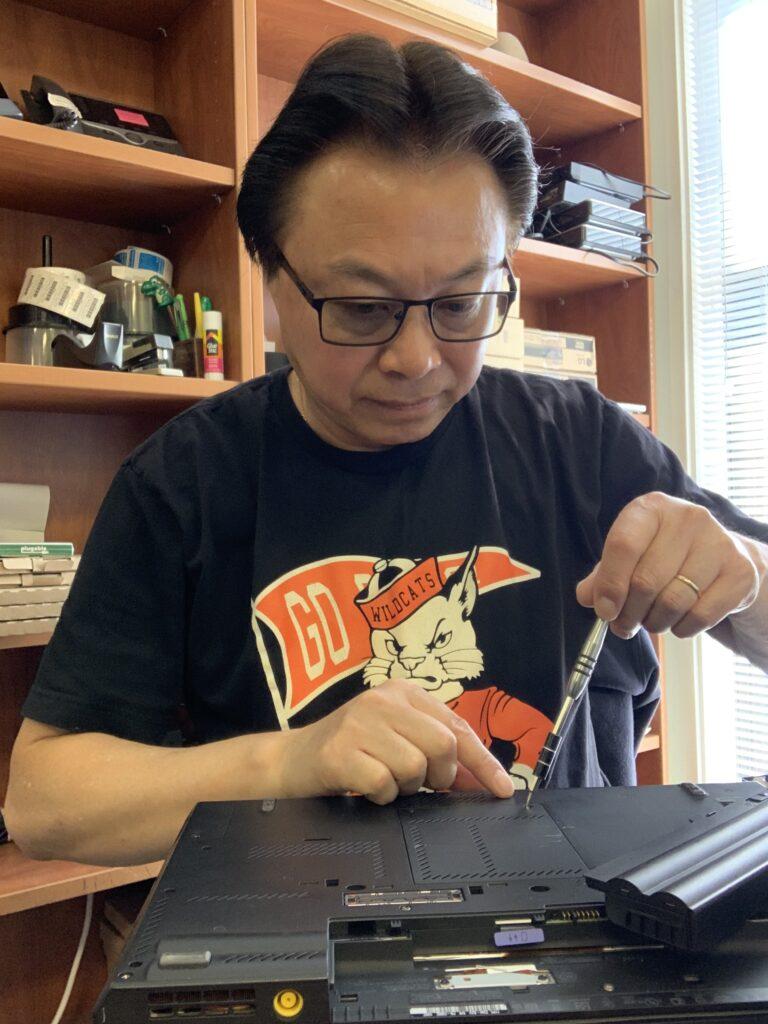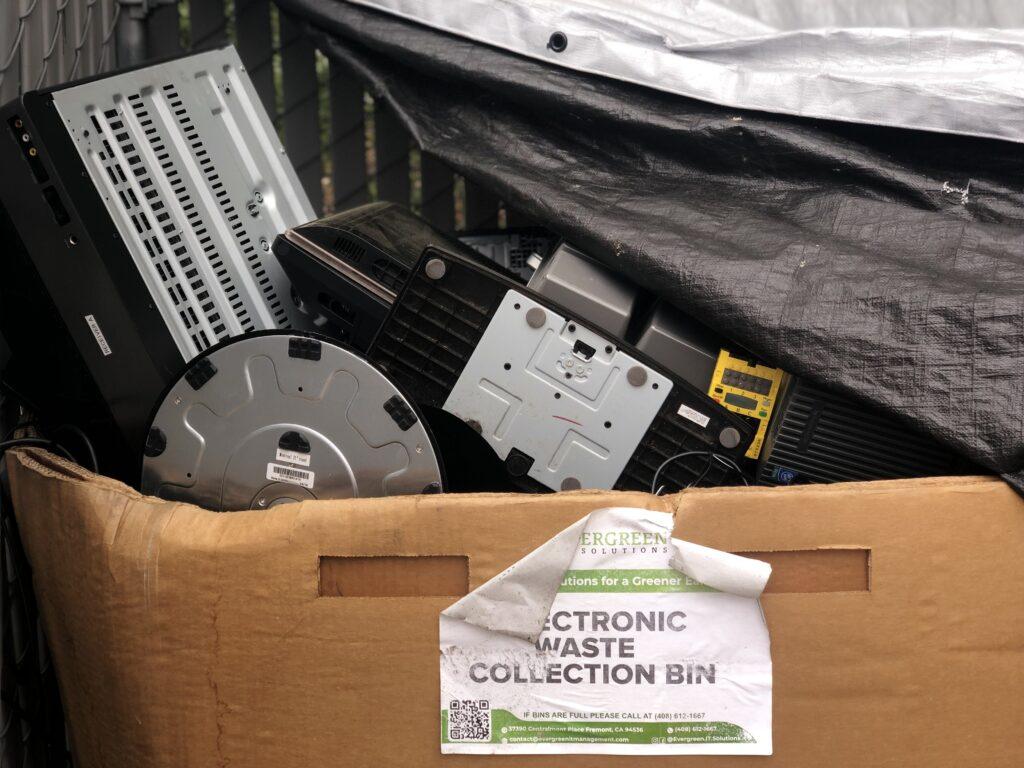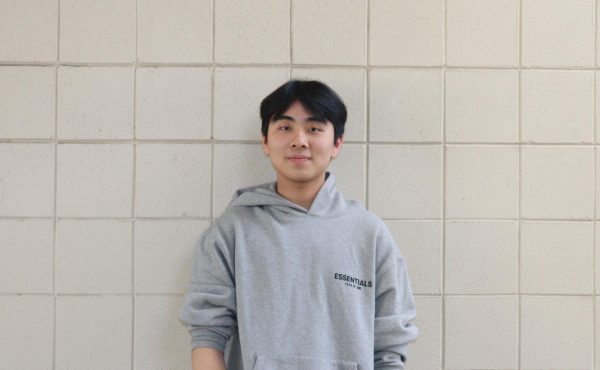As a regular part of his job as an IT technician for the district, Dan Lam processes the electronic waste that comes to him from SHS and Los Gatos High: outdated MacBooks, Chromebooks that aren’t supported anymore, and other old electronics. Rather than disposing of them, Lam tries to repurpose them by selling them online and generating income that can then go back to the district.

Courtesy of Dan Lam
Lam works on unscrewing an electronic part.
Lam receives broken goods from the IT departments at SHS and LGHS, including DVDs, VCRs, TVs, lamps and other consumer electronics.
Lam said that Evergreen IT Solutions, the company that manages the district’s garbage disposal, collects e-waste in the back of the school in a large green bin before disposing of it properly.
The school is charged by the weight and category of electronic parts. Lead batteries and old light bulbs tend to contain toxic, hazardous substances such as sulfuric acid and mercury, leading to higher prices for pick-up and disposal.
In addition to disposing of electronics, the district also resells usable electronics that they no longer use. Damaged laptops and Chromebooks are the most common items Lam receives. If outdated hardware or software components cannot be easily replaced, repaired or updated, but the computer still works, then it qualifies to be listed for auction.
“We will test [a device] first and see if we can fix it — like if it’s just a broken MacBook screen, we just order the part and replace it,” Lam said. “[Otherwise,] we make sure they’re in working condition and we wipe everything from the hard drive before we list them to make sure no data is going to be on them.”
When enough computers have accumulated, Lam puts out a report detailing each computer’s information and reasons for being listed. The tech director and the school board evaluate and must then approve this assessment. Old computers cleared of any data are posted online on govdeals.com for auction. Lam’s latest listing, which includes 60 MacBook Pros, 60 MacBook Airs and 10 Mac Minis, sold for $17,400 at noon on April 25. Through his listings from 2023, Lam sold around 400 Chromebooks, bringing in about $7,000 in revenue for the district.
Typically, those who make purchases are small or independent businesses that refurbish old devices and resell them to impoverished countries in Asia and Africa. Others may post listings on eBay to resell them in better condition.
“[The winning bidders] usually don’t tell us their business names, but I asked the guy personally and he told me [his reason for the purchase] and I said, ‘OK, makes sense,” Lam said. “Because why would you want 400 of these computers?”
Although the school has measures to secure e-waste from being accessed, at least one student told The Falcon they were able to take electronics from an e-waste bin located in an area behind the science wing. The student said he has worked on two damaged MacBook computers that he has disassembled for parts and resold, and he believes that the e-waste bin should be opened up for students to access.
“I have been working with electronics since I was young, so working with these computers while also learning more about the internal workings of [the MacBooks] has been pretty fun,” the student said. “If the school is going to pay to take the waste away, they might as well let students take the parts and have fun and resell them.”
Assistant principal Matt Torrens said the bin is behind locked gates on evenings and weekends. Per school policy, rummaging through the e-waste bins is prohibited because they contain potentially dangerous materials, and students who are caught trying to take technology from those bins can face punishments.
“According to our district/board policy, we call an authorized company to come and pick up the items. With the safety of everyone our primary concern, we are careful to make the equipment secure,” Torrens said. “If a student is caught taking equipment in the e-waste, we follow our policy on theft.”




























